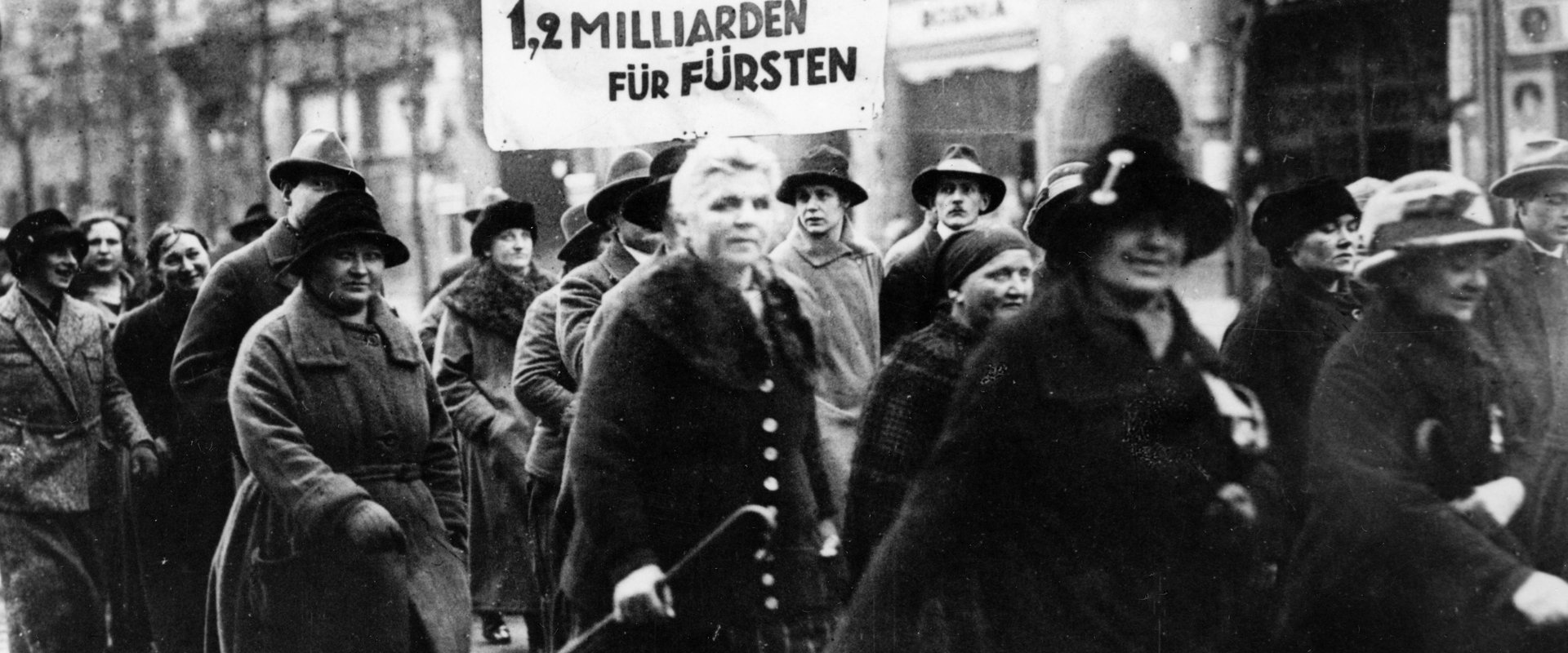This workshop is organised by subproject A04.
Contact: roman.birke@uni-jena.de
“Property and Property Policies in the German Empire and the Weimar Republic”

Subproject A04 of the Collaborative Research Centre Structural Change of Property invites you to a workshop at Friedrich Schiller University Jena on November 2 and 3, 2023, to discuss the significance of tangible and intangible forms of property in their social, legal, economic, and cultural dimensions in the German Empire and the Weimar Republic. Projects in all stages are invited to present papers, dealing with the topic from different disciplinary perspectives.
Guiding questions of the workshop are:
• Which ideas of property were enshrined in the legal principles of the time (Civil Code, Weimar Constitution, etc.) and which ideological and socio-political conflicts developed around such principles?
• How can the claim of social responsibilities related to property be grasped, which assumes a responsibility on the part of owners to contribute to a wider social good?
• What were the tensions between the ideas of property ownership in the German Empire and those in the German colonies in Africa and the Pacific?
• What was the role of courts and other regulatory institutions in legally enshrining and enforcing ideas of property?
• In what ways were understandings of property represented culturally and how did cultural ideas influence the codification of property?
Crosscutting these questions are aspects of research that specifically address dimensions of gender and race.
The workshop follows on from scholarship that assumes that social norms are expressed in the respective regionally and historically specific codification of property rights. These norms were not rigid but subject to regular change. The workshop's interest thus extends in two dimensions beyond the observation that in modern forms of property rights the owner of a thing could dispose of it without restriction. First, the specific form of this abstract idea depended on regional and temporal circumstances - especially with regard to colonialism. Also, the unrestricted power of disposal over property was repeatedly socially challenged and politically restricted. Second, the state-driven enforcement of property rights was a lived reality. However, the longevity of private property cannot be explained without reference to everyday acts and practices that established its significant and sometimes hegemonic position in societal discourse.
Together, the presentations should enable the workshop to have discussions about the meaning of property in history. The workshop will also reflect on which historiographical or other methods in the humanities and social sciences can be used to focus on the social meaning of property without adopting simplistic ideas of economic basis and cultural superstructure.
Travel and accommodation for participants will be funded.
